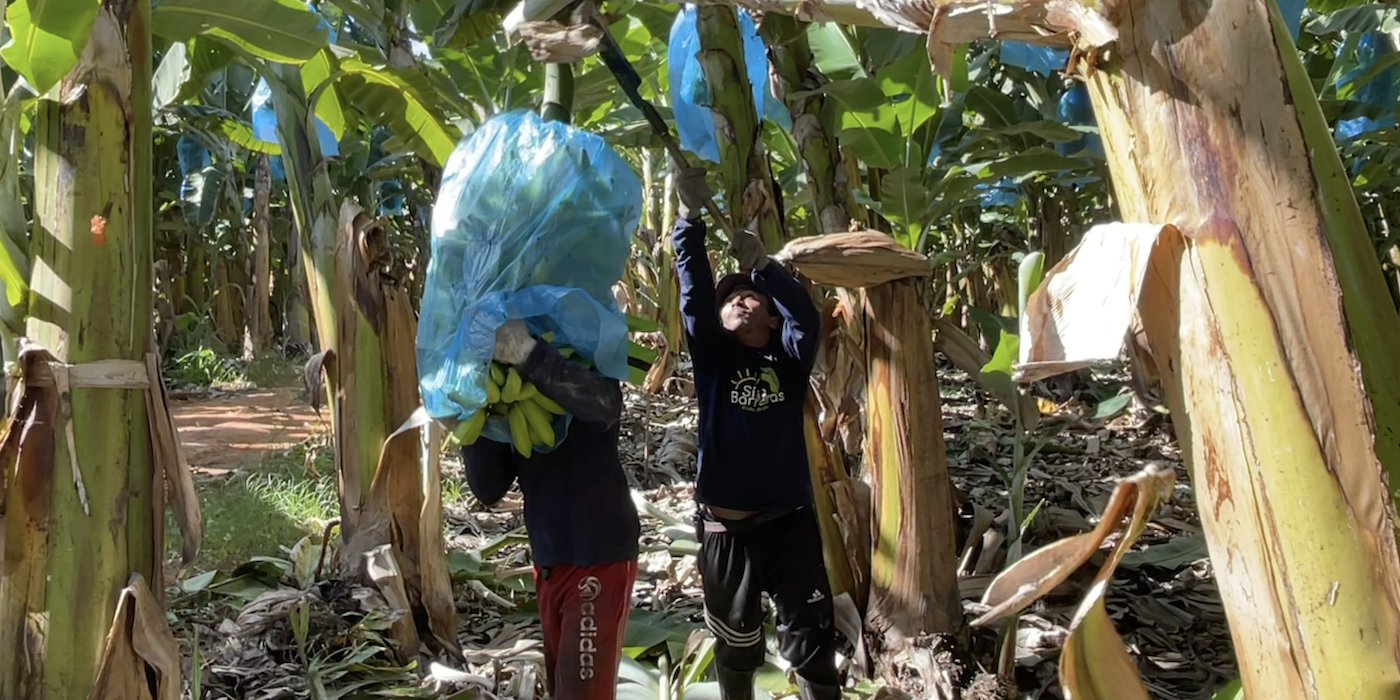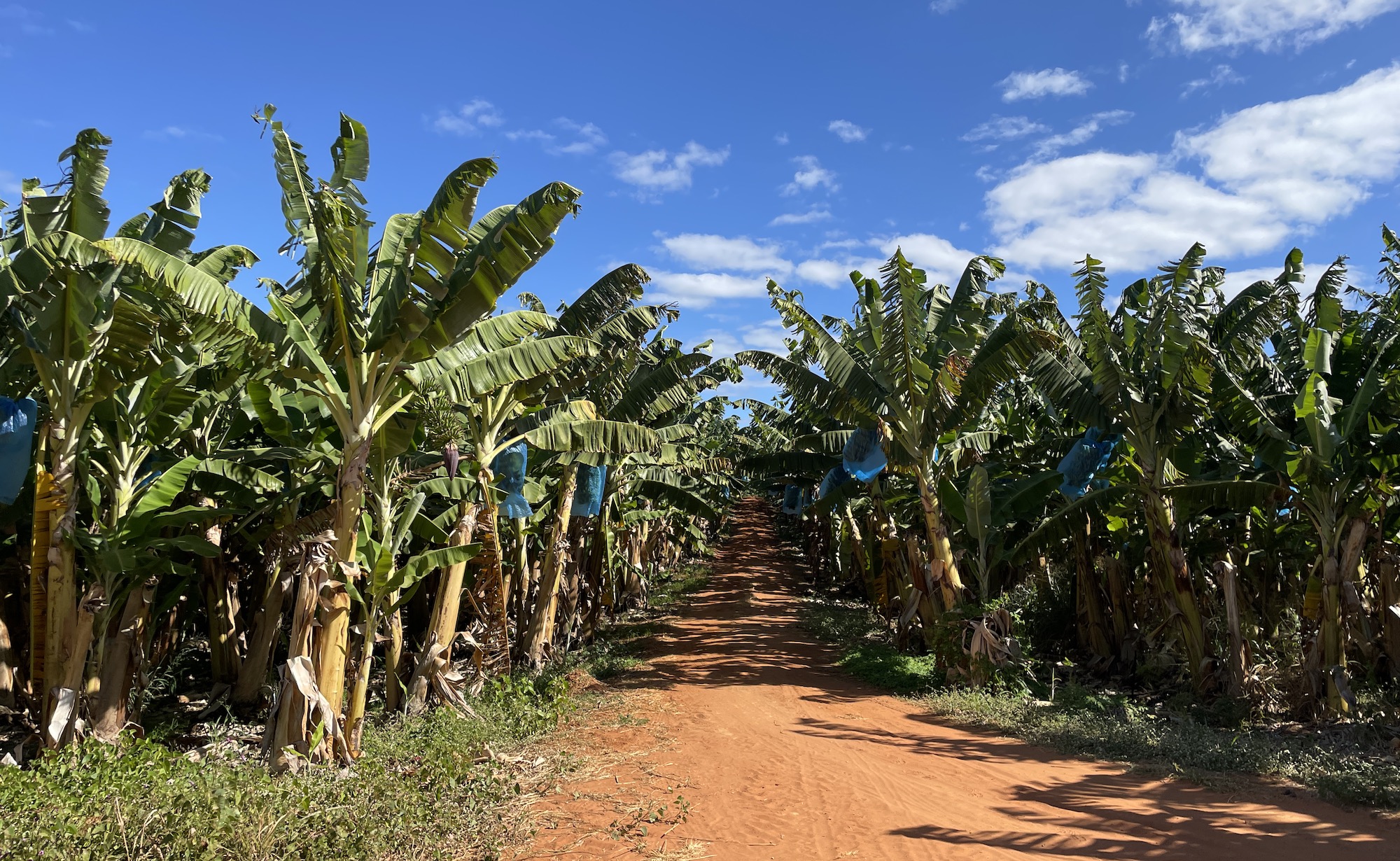case study – this brazilian agrobusiness has developed a unique and clever management system that puts people at the heart of the work.
words: bruno battaglia and luciana gomes
fábio regis is a dreamer. as the owner of the sítio barreiras plantation in the northern brazilian state of ceará, he is hoping to transform his 720-people company – which grows bananas and cocoa, but also sells fruit it purchases from other suppliers – into a reference for agrobusinesses in the latin american country and beyond. we were lucky enough to visit sítio barreiras a few weeks ago and what we have seen is nothing short of extraordinary.
when fábio took the realms of his family’s business at the end of the 1990s, the company transitioned from a banana plantation to a comprehensive distribution operation that manages the whole value chain, from farm to supermarket. to make this transformation possible, fábio (an agronomist by trade) needed to develop a proper understanding of the end-to-end process and a way of controlling the work across the value stream. that’s when the first lean tools and techniques were introduced at sítio barreiras.
his research even brought him to japan, where fábio learned more about lean thinking and what it takes to create a lean enterprise. at the time, he already had very strong 5s and job instructions in place, and routinely relied on value stream mapping to generate visibility of the process. the tools were never the problem for fábio and his people. what they needed was a proper management system. if they were to control and manage the entire value stream effectively, they were going to need to rethink the way the company was structured, as well as identify a set of indicators that could guide their work.
that’s when a system of basic managerial units (bmus) was introduced, turning the traditional management model on its head. in essence, this meant breaking down the overall process into small units – responsible for things like harvesting, irrigation, packaging, wrapping banana bunches, and so on – working autonomously to fulfill the work, improve and problem solve. today, there are 89 bmus across sítio barreiras. their performance is measured against the expected results, like any department would in a traditional organization, but when it comes to determining how to get to those results, the units are fully independent (they can even renegotiate targets with management, when they feel like their current circumstances – like a newly hired employee who hasn’t completed training yet – will prevent them from achieving them).

decentralized management on the go
we have rarely come across a management system that goes as deep as the sítio barreiras system, which also has a strong digital component to boot. three dimensions control every aspect of life in the company: managerial (mainly connected with lean tools, like 5s and process audits), technical (linked to business results, with the purpose of each unit as it contributes to the business mission) and human. this latest aspect is what makes this business different, in line with fábio’s belief that financial results are a result of people’s evolution and development.
reflecting this, every employee has access to all the information they need on their mobile devices, making the sítio barreiras system the ideal tool for interacting and contributing to the company’s goals and mission. interestingly, there are no individual goals in the company; instead, there are unit goals. this approach fosters – indeed, is based on – collaboration. rooted in the idea that “either we all reach the goal or nobody does”, the human component of the company’s management system is meant to ensure that everyone contributes to the work of the unit.
individual contribution is assessed quarterly for mbus and every six months for managers by all levels (upper, lower and peer), plus an extra assessment for new hires taking place 15 days after they join the company. this assessment determines whether the person stays with the company or not. as radical as this bottom-up evaluation system may sound, it seems to work – partly because it applies to leaders, too. it enables the right culture to take root at sítio barreiras and builds pdca into the process: after the quarterly assessment, everybody gets feedback from their direct leaders and has to build an evolution plan (there is also a psychologist supporting the whole process). the fact that there are no individual goals means that everyone is judged fairly, based on their contribution, without factors like age or expertise coming into play. evidently, a 50-year-old cannot do as much hard manual labor as a 20-year-old, but they can show up at work, be on time, respect their colleagues, and contribute their expertise to improve the work of the unit. there are many recognition programs designed to engage people and mbus. two examples are the mbu of the month and mbu of the year programs, when best performing units are recognized, as if to strengthen fábio’s other belief that “if our goal is shared, our differences become our differentiator”.
this is de-centralized management on steroids. units are autonomous in their decisions, to the point that they determine who stays and who doesn’t, but if you think this might let personal relationships, feelings, and affinities come into play, think again. more than 90% of the people who join sítio barreiras come recommended by existing employees, which means there is a certain sense of responsibility to bring in someone who will be a good fit for the company. even when it is up to fabio to hire someone for certain positions within the business, it is the candidate’s values and beliefs that are scrutinized, not their technical expertise. it makes sense if you think about it: everyone can learn a technical skill, but not everyone can develop the right way of thinking.
after introducing the “human” component into their management system and turning to the unit-based structure, however, sítio barreiras realized that it was struggling to get all the units to reach a similar level of maturity. it was 2017, the year of another major turning point for the company: the game-changing introduction of a special bmu (known as “the management nucleus”, a kind of center of intelligence) composed of system developers, a process engineer who is responsible for designing the system, and auditors. informed by the data generated by the company’s digital tools, nucleus members help the different units to bridge gaps in knowledge and, ultimately, to succeed. their role is also to translate the company’s mission into goals for the different units – acting as a bridge between top management and the front line.

improvement through suggestions
sítio barreiras empowers people to take ownership of the improvement of the work. every activity – like changing a tractor’s tire – is associated with a goal. if this goal isn’t met, people are encouraged to come up with possible solutions. the chief tool for problem solving is the suggestions system. the process for submitting ideas is very easy and entails using a simple online form – everyone has access to it through their smartphones – that asks people to explain the problem, the solution they have devised, and the benefits they expect to achieve. ideas, big or small, can then be discarded or accepted by managers. once an idea is implemented, if it works, it becomes the new standard and the person who suggested it receives around $30 reward. on a dashboard on their phone, employees can even see how much money they have earned over time from their recommendations, and they can choose to keep the cash or exchange it for products. in 2022, 702 ideas were implemented, while last year that number grew to 900. in the first semester of 2024, 595 ideas were implemented already. this is how the company keep the improvement coming.
with strong social responsibility, a deep focus on human development, and an innovative approach to doing business, sitio barreiras is becoming a reference for other agrobusinesses across brazil, which constantly visit the plantation to learn from them. still, the company’s people-centric system is not easy to understand. it is our hope that this article might help agrobusinesses out there to realize that a different way of doing things in agriculture exists.
the authors

